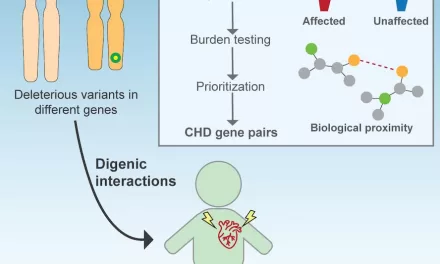When you’re gathered with friends or family, you may notice that something feels a bit off in a conversation with a loved one. They might be disengaged or acting differently than usual. According to Dr. Angela Peng, an otolaryngologist at Baylor College of Medicine in Houston, this could be a sign of new-onset hearing loss.
Dr. Peng explains that several key indicators can suggest someone is struggling with their hearing:
- Nodding and Smiling Without Engaging: A person with hearing loss may often nod and smile during conversations, but not fully participate. They may be faking engagement because they can’t clearly hear what’s being said.
- Social Withdrawal: If a loved one begins to prefer sitting alone or avoids joining group conversations, it could indicate difficulty following along, particularly in noisy environments.
- Avoiding Large Gatherings: Individuals with hearing loss might turn down invitations to social events, especially those held in loud or crowded spaces. This is because background noise can make it difficult to hear individual voices, Dr. Peng notes.
“Hearing loss can become particularly noticeable in environments with many people talking at once or loud music, where the background noise makes it hard to focus on conversations,” said Dr. Peng, who is an assistant professor of otolaryngology-head and neck surgery.
While it’s common for hearing to decline with age, noticing these signs may signal that your loved one could be dealing with a hearing issue, even in younger adults.
How to Approach the Topic
If you suspect that a loved one may have hearing loss, Dr. Peng advises broaching the subject gently. You might ask if they have seen an audiologist or an ear, nose, and throat (ENT) doctor for a hearing check. Audiologists perform tests to assess hearing and distinguish between different sounds and words. If results suggest a problem, the individual may be referred to an ENT specialist to rule out any underlying conditions.
Available Solutions
The good news is that hearing loss can often be managed with the right tools. Dr. Peng mentions that hearing aids are typically an effective solution for early signs of hearing loss. However, if the condition worsens, more advanced options such as cochlear implants may be considered, although these require surgery.
“Hearing aids are appropriate for the first signs of hearing loss, but if the hearing worsens, a cochlear implant may be an option. This requires a more detailed conversation with a specialist,” Dr. Peng shared in a Baylor news release.
Tips for Communicating with a Loved One Experiencing Hearing Loss
For those with hearing loss, communication can become challenging, but there are steps you can take to make interactions easier:
- Find a Quiet Space: At social gatherings, move the conversation to a quieter area where there’s less background noise. This can help the person focus better on the conversation.
- Speak Clearly and Slowly: Rather than raising your voice, try speaking more slowly and enunciating words carefully. Even with hearing loss, speaking louder won’t necessarily make things clearer if the issue is understanding speech.
“If the person’s hearing loss is due to difficulty understanding words, no matter how loud you talk, the message will still sound unclear,” Dr. Peng explains.
By recognizing the signs of hearing loss early and offering support, you can help a loved one navigate the challenges of hearing impairment with compassion and understanding.












